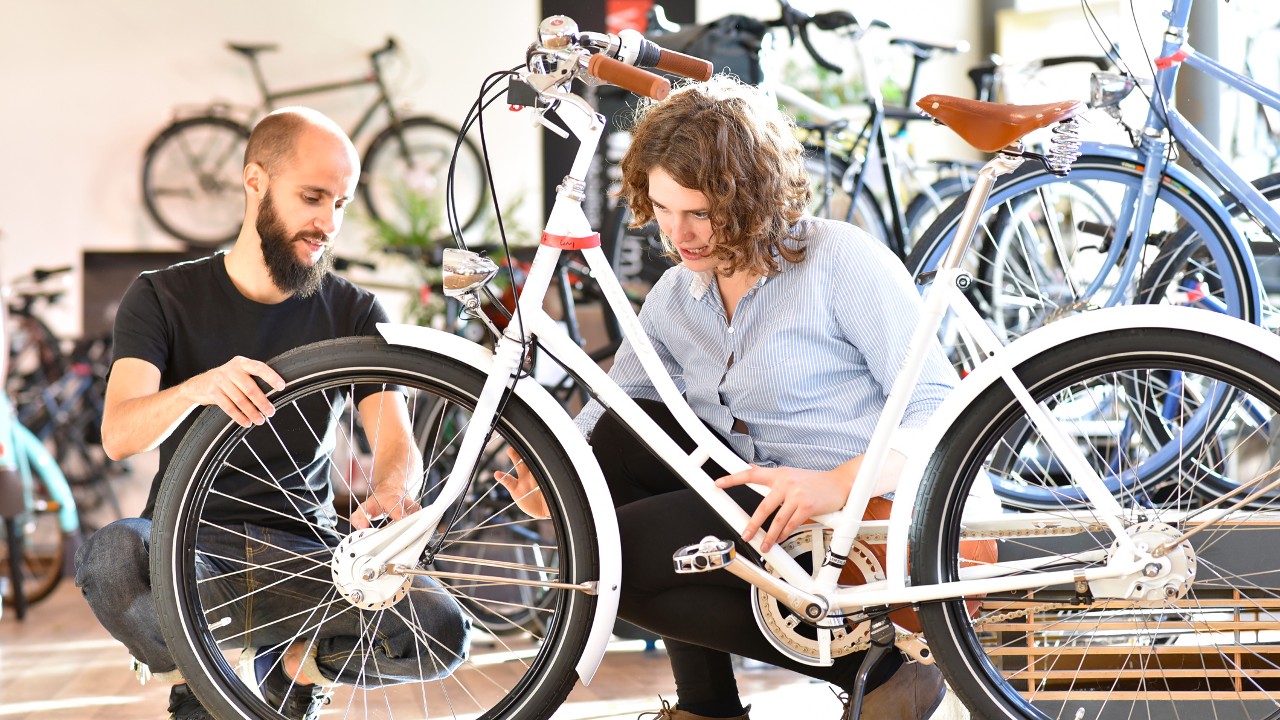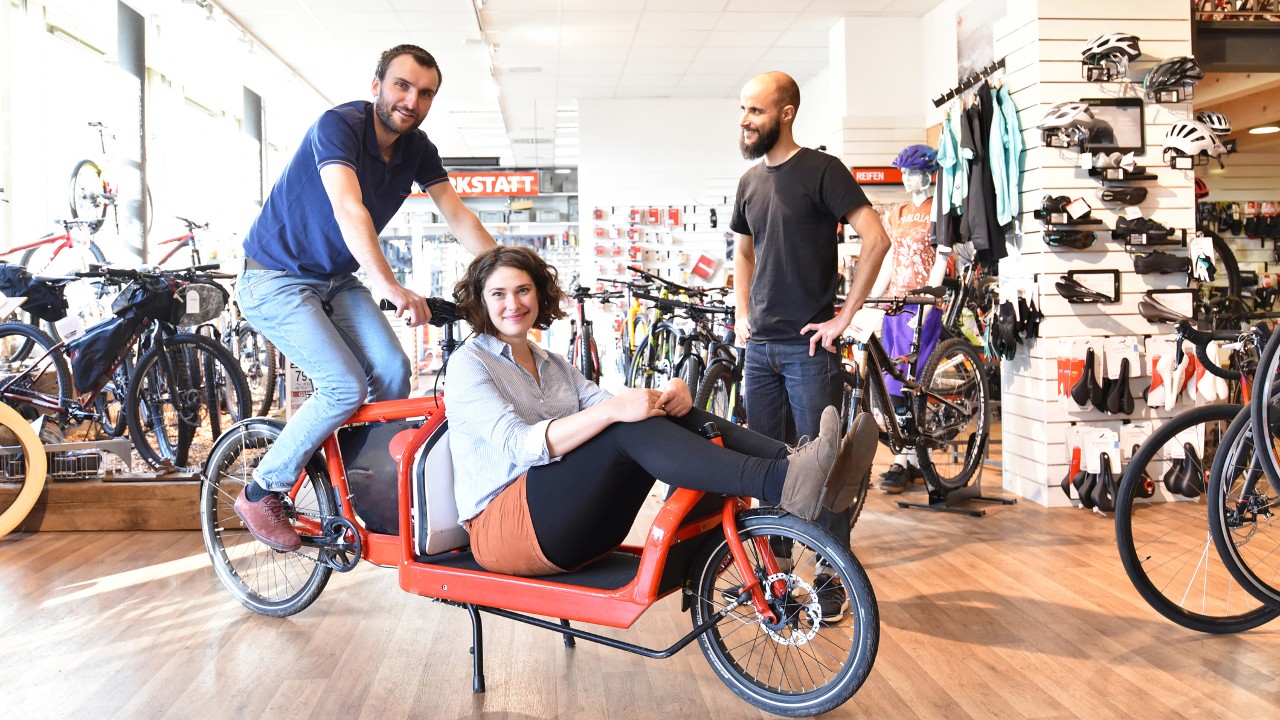What Are The Actual Costs Of Cycling To Work?
The cost of living crisis may have you considering commuting by bike, but it’s far from free. Here, we help you work out whether the costs of cycling work with your budget

Sign up for workout ideas, training advice, reviews of the latest gear and more.
You are now subscribed
Your newsletter sign-up was successful
The UK’s cost of living crisis is expected to get much worse with the energy price cap estimated to rise dramatically not once, but twice, this winter, affecting an ever greater proportion of households. That’s on top of the increasing cost of food and transport.
For drivers, prices at petrol pumps have started to come down gradually, but they are still in the region of 40p per litre more expensive than 12 months ago and the cost of filling up a family car remains just under the £100 mark.
Public transport isn’t exempt either. London Mayor Sadiq Khan has already warned that fares in the capital are likely to go up by 10% next January, while rail fares could face similar increases, even if a recent government announcement says they won’t rise by as much as the retail price index – currently 11.8% – which normally dictates annual increases.
You may well be looking for savings in every area, using less energy, shopping in a cheaper supermarket and, perhaps, considering travelling by bike.
We heartily recommend cycling to work at Coach and have covered the real-life benefits people get from cycle commuting, which include saving money.
We’ll get the caveat out of the way now. Cycling obviously isn’t going to cut it if you’ve got a 100-mile commute, or if you’re a tradesperson who needs to lug a lot of equipment around from job to job. But for shorter journeys – whether that’s door-to-door or replacing a drive to the station – it’s one of the cheapest and (especially in dense urban areas) quickest ways of getting around.
But how cheap is it? To help you decide if cycling could make a significant difference to the state of your finances, we’ve created this guide to the costs of cycling, with a focus on commuting.
Sign up for workout ideas, training advice, reviews of the latest gear and more.
Initial Investment
If you don’t already own a bike, this is likely to be one of your arguments against cycling if you’re really up against it. Even entry-level bikes (which we’ve assessed in this guide to the best budget bikes) will set you back close to £200. If money is already tight, that might seem like an unnecessary expense when you factor in buying accessories like bike lights (a legal requirement if riding at night), a bike lock (essential), bike helmet and reflective winter clothing (there’s no law that says you have to wear them, but many prefer to).
If you have more room to manoeuvre, you can find great hybrid bikes for commuting for anywhere between £350 and £1,000 that – even with the extras – will probably add up to a saving compared with an annual train or bus ticket.
One way to reduce the cost significantly is to use the Cycle to Work scheme, which enables eligible employees to spread the expense of a bike (and any accessories you need) over 12 months, with the payment deducted from your payslip before tax. There’s no limit on this, which means electric bikes are on the table too – especially useful if you’re worried you live too far from work to cycle.
“I've tried to reduce the amount of car usage for my school run in the morning,” explains Brighton-based Ben Kelly, who had been considering buying an electric car but had to look at other options when he realised he couldn’t afford it. He decided on a £3,000 electric cargo bike, which by no means cheap, was “considerably less than a car”.

Since buying it in October 2021, Kelly has covered 1,000km (621 miles), which is mainly the 8km round trip to school and back. “There’s a direct saving that can be calculated, especially with the cost of diesel and everything at the moment.”
The benefits aren’t just financial either. “I'm taking one car off the road, I'm freeing up congestion and it's a lot more fun – my kids love it when I say we're going to get the bike out today. They love that sensation of whizzing along and beating the traffic.”
Day-To-Day Outgoings
A bike isn’t just a cheaper purchase than a car or an annual public transport season ticket – it costs less to run, too.
Compared with a car, cycling removes three costs at a stroke. There’s no vehicle excise duty to pay, the only refuelling required is feeding yourself, and bike insurance isn’t compulsory (entry-level policies are targeted at protecting you from theft rather than personal liability).
There are maintenance costs to factor in. Research by NimbleFins put general service costs around £35 a time (a service is recommended every three to 18 months depending on usage and other factors), and parts like tyres and chains will have to be replaced once worn out, but these are minuscule compared with the savings you’ll have made.
“I resent it now when I can’t cycle because it’s good exercise and it’s saving me money,” says part-time nurse Sue Saunders. She rides the 7½ miles from her home to Royal Bournemouth Hospital as frequently as she can, and drives only in the depths of winter when icy and dark conditions make it dangerous to cycle.
“If I drive, it costs me £3 a day to park, plus there’s the fuel for those two journeys,” Saunders says. “[Cycling has] saved me a fortune over the years and it’s a nice wind-down, coming home from work.”
Even if you switch only to cycling some of the time like Saunders, you’ll still save money. A handy tool by Omni Calculator lets you see just how much, depending on the distance to your workplace, the efficiency of your car and the cost of fuel. For example, by leaving the car at home and cycling the five miles to work just two days a week, you could save yourself £121.50 a year.
Charlie Allenby is a journalist with a passion for pedalling. He contributes features and buying advice about cycling, and is Coach’s dedicated turbo trainer reviewer. He is also Coach’s chief whey and casein protein powder tester, trying as many brands as possible.
Charlie’s first book, Bike London, is out now. He has written for The Guardian, The Independent and BikeRadar, among others.

